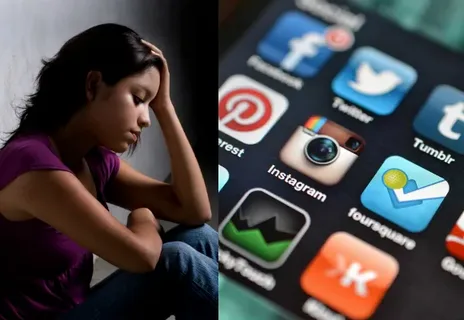
In today’s digital age, social media has become an integral part of the lives of teenagers. They use social media platforms like Instagram, Snapchat and TikTok to connect with friends, share their lives and seek validation from others. While social media has many benefits, it has also been linked to several negative effects on mental health. In this blog, we will explore how social media affects the mental health of teenagers and what can be done to prevent its harmful effects.
- The Impact of Social Media on Mental Health
Social media has been linked to several mental health issues in teenagers. Here are some of how it affects their mental health:
- Depression and Anxiety
Studies have found that teenagers who spend more time on social media are more likely to experience depression and anxiety. Social media use can lead to feelings of inadequacy, low self-esteem and a fear of missing out (FOMO). Additionally, cyberbullying and online harassment can also contribute to feelings of depression and anxiety.
- Sleep Problems
Social media use has been linked to sleep problems in teenagers. The blue light emitted by screens can disrupt the body’s natural sleep-wake cycle, making it harder to fall asleep and stay asleep. This can lead to fatigue, irritability and difficulty concentrating during the day.
- Addiction
Social media can be addictive, especially for teenagers who are still developing their self-control and decision-making skills. The constant need for likes, comments, and followers can lead to compulsive social media use and addiction.
- Body Image Issues
Social media can contribute to body image issues in teenagers, especially girls. The constant exposure to filtered and photoshopped images can create unrealistic beauty standards and lead to feelings of inadequacy and self-doubt.
- How to Prevent Harmful Effects of Social Media on Mental Health
While social media has its negative effects, it is possible to prevent its harmful impact on mental health. Here are some tips for parents, educators, and teenagers:
1.Limit Screen Time
Parents and educators should limit the amount of time teenagers spend on social media. Encourage them to engage in other activities like sports, reading and spending time with friends in person.
2.Promote Positive Body Image
Parents and educators should promote positive body image in teenagers by encouraging healthy habits like exercise and balanced diets. They should also encourage teenagers to embrace their unique qualities and appreciate their bodies for what they are.
3. Monitor Social Media Use
Parents should monitor their teenager’s social media use and look out for signs of addiction or cyberbullying. They should also educate teenagers on the dangers of social media and how to use it responsibly.
4. Encourage Face-to-Face Interaction
Encourage teenagers to interact with their friends in person, rather than relying solely on social media. This can help to strengthen social skills and build real connections.
5. Seek Help
If a teenager is experiencing mental health issues related to social media, it is important to seek help from a mental health professional. They can provide guidance and support to help the teenager cope with their feelings and develop healthy habits.
- Conclusion
Social media has both positive and negative impacts on the mental health of teenagers. While it provides a platform for social connection and self-expression, excessive use of social media can lead to negative outcomes such as anxiety, depression and addiction. Therefore, it is important for teenagers to use social media in moderation and to be mindful of their online interactions. Parents and caregivers also play a crucial role in monitoring their teenagers’ social media use and providing support and guidance when needed. With the right balance of offline and online activities, teenagers can develop healthy relationships with technology and maintain good mental health.
As always, it’s important to remember that every individual’s mental health is unique and complex. It’s important to seek professional help from a mental health expert like Dr Neha Gupta if you or someone you know is experiencing significant mental health issues. By taking a proactive approach to mental health and seeking the right support, teenagers can navigate the challenges of social media and technology while promoting their overall well-being.




